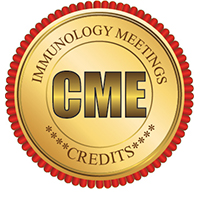
Rangaiah Shashidharamurthy
Philadelphia College of Osteopathic Medicine, USA
Title: Lipocalin2, an innate immune protein, deÞ ciency pre-dispose mice to pro-inß ammatory condition
Biography
Biography: Rangaiah Shashidharamurthy
Abstract
Lipocalin 2 (Lcn2), a 25KDa innate immune protein, known to be significantly up regulated in various inflammatory disorders including antibody-mediated arthritis, yet its biological role remains unclear. More recently, our studies have suggested that the regulation might be necessary for the resolution of inflammatory process. However, the exact mechanism involved in this process is still unknown. In this study, we have investigated the anti-inflammatory function of Lcn2 using RAW 264.7 cells (murine mouse macrophages) and Bone marrow derived macropahges (BMDMs). To determine the anti-inflammatory effects of Lcn2, an ELISA revealed that M2 macrophages in the presence of recombinant Lcn2 (rLcn2) significantly increased the expression of IL-10. However, RAW 264.7 cells treated with Lcn2 alone did not exert either pro- or anti-inflammatory effect. BMDMs from Lcn2 deficient mice exhibited increased INF-g induced STAT-3 activation but not the STAT-6. In addition, rLcn2 inhibited the RANKL-induced osteoclast (bone resorbing cells) formation. In conclusion, our data indicates that Lcn2 deficiency promotes the pro-inflammatory response through STAT-3 pathway. Furthermore, Lcn2 promotes anti-inflammatory function by potentiating the polarization of macrophages towards M2 phenotype and anti-inflammatory cytokine secretion. In addition, Lcn2 deficiency also increases RANKL-mediated osteoclast formation from its precursor cells. Taken together, these studies suggest that Lcn2 inhibits inflammation as well as excessive bone erosion conceivably through STAT-3 pathway during autoinflammatory conditions.

